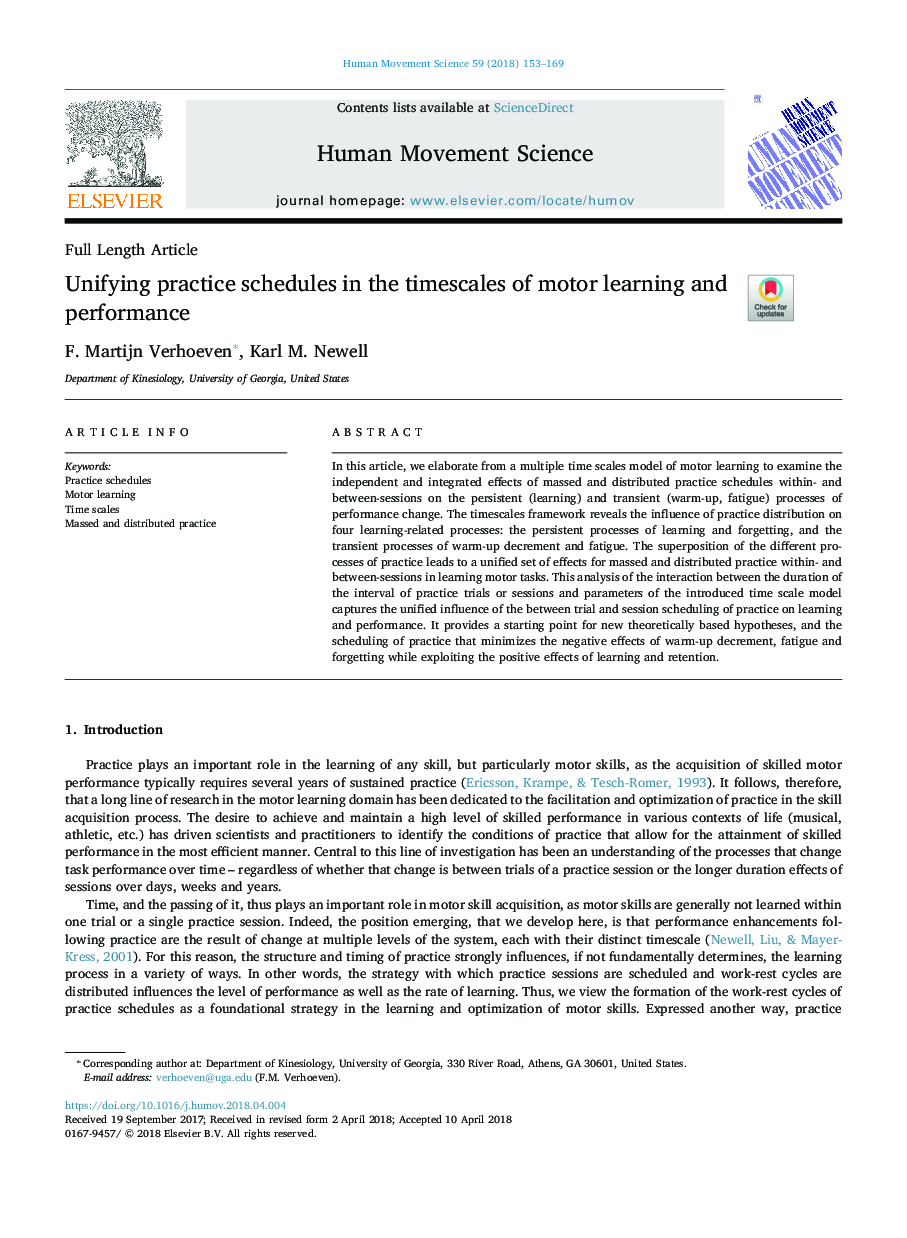| Article ID | Journal | Published Year | Pages | File Type |
|---|---|---|---|---|
| 7290900 | Human Movement Science | 2018 | 17 Pages |
Abstract
In this article, we elaborate from a multiple time scales model of motor learning to examine the independent and integrated effects of massed and distributed practice schedules within- and between-sessions on the persistent (learning) and transient (warm-up, fatigue) processes of performance change. The timescales framework reveals the influence of practice distribution on four learning-related processes: the persistent processes of learning and forgetting, and the transient processes of warm-up decrement and fatigue. The superposition of the different processes of practice leads to a unified set of effects for massed and distributed practice within- and between-sessions in learning motor tasks. This analysis of the interaction between the duration of the interval of practice trials or sessions and parameters of the introduced time scale model captures the unified influence of the between trial and session scheduling of practice on learning and performance. It provides a starting point for new theoretically based hypotheses, and the scheduling of practice that minimizes the negative effects of warm-up decrement, fatigue and forgetting while exploiting the positive effects of learning and retention.
Keywords
Related Topics
Life Sciences
Neuroscience
Cognitive Neuroscience
Authors
F. Martijn Verhoeven, Karl M. Newell,
